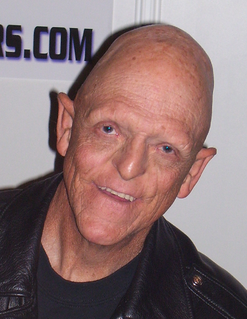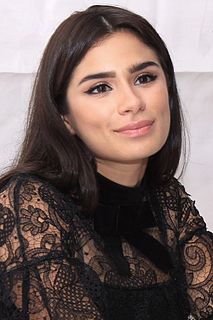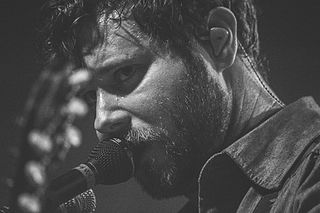A Quote by Flannery O'Connor
A story is a way to say something that can’t be said any other way, and it takes every word in the story to say what the meaning is.
Related Quotes
A story is a way to say something that can't be said any other way, and it takes every word in the story to say what the meaning is. You tell a story because a statement would be inadequate. When anybody asks what a story is about, the only proper thing is to tell them to read the story. The meaning of fiction is not abstract meaning but experienced meaning.
Recognize that whether you are worthy or not is all a made-up 'story'...Nothing has meaning except for the meaning we give it...There's no one who comes around and stamps you 'worthy' or 'unworthy'. You do that. You make it up. You decide it...If you say you're worthy, you are. If you say you're not worthy, you're not. Either way you will live into your story.
It's the form it takes when it comes out the other side, of course, that gives a story something unique--its life. The story, in the way it has arrived at what it is on the page, has been something learned, by dint of the story's challenge and the work that rises to meet it--a process as uncharted for the writer as if it had never been attempted before.
I get up in front of a bunch of kids and say 'Hey, I'm gonna tell you a new story. Who wants to be in a new story?' Well some kid always sticks up their hand and that gives me a name, but it doesn't give me a story. I just say whatever comes to my mind and usually it's not that good. Every once in a while, however, I say something that turns into a really good story.
I believe in the complexity of the human story, and that there's no way you can tell that story in one way and say, 'this is it.' Always there will be someone who can tell it differently depending on where they are standing ... this is the way I think the world's stories should be told: from many different perspectives.
The biggest threat to your creativity is the fear that it's already been done, said, created. (So why bother?)
Say it, do it, make it anyway - but tell YOUR story along the way.
The story of how you came to know what you know.
The story of what you want to know more of.
The story of why you do what you do.
The story of how you came to care.
And that's how you create what's never been created before.
Since I went public with my story, I've never experienced such hate. I sometimes want to crawl under my blanket and hide forever and say, "No, that's some other girl who had an opinion." My blood has boiled a few times, but I just have to come back to earth and say people are entitled to their own opinions and I'm entitled to share my story the way I want. And that's exactly what I'm doing.
I shouldn't have said it, but the word slipped out of my mouth as easy as air. it wasn't exactly the kind of work any well-behaved student would use, which sort of explained why I had just used it. And it certainly isn't the most elegant way to start off a story, but it honestly represents what I was feeling. Besides, I could have said something a lot stronger. But not everybody wants to read a story with those kinds of words and thoughts being expressed in the very first sentence. "Stop swearing," Jason screamed.
You have something to say. Something of your very own. Try to say it. Don't be ashamed of any real thought or feeling you have. Don't undervalue it. Don't let the fear of others prevent you from saying it... You have something to say, something that no one else in the world has said in just your way of saying it.
When I say myself, I don't mean just as a woman of color, as a girl who's growing up in the Bronx, as people growing up in some way economically-challenged, not growing up with money. It was also even just the way we spoke. The vernacular. I learned that it's alright to say "ain't." My characters can speak the way they authentically are, and that makes for good story. It's not making for good story to make them speak proper English when nobody speaks like that on the playground.
I don't have any one way to tell a story. I don't have any rule book of how it's supposed to be done. But I've always said that if a story would be more emotionally involving told, beginning, middle, and end, I'll tell it that way. I won't jigsaw it, just to show what a clever boy I am. I don't do anything in my script just to be clever.






































